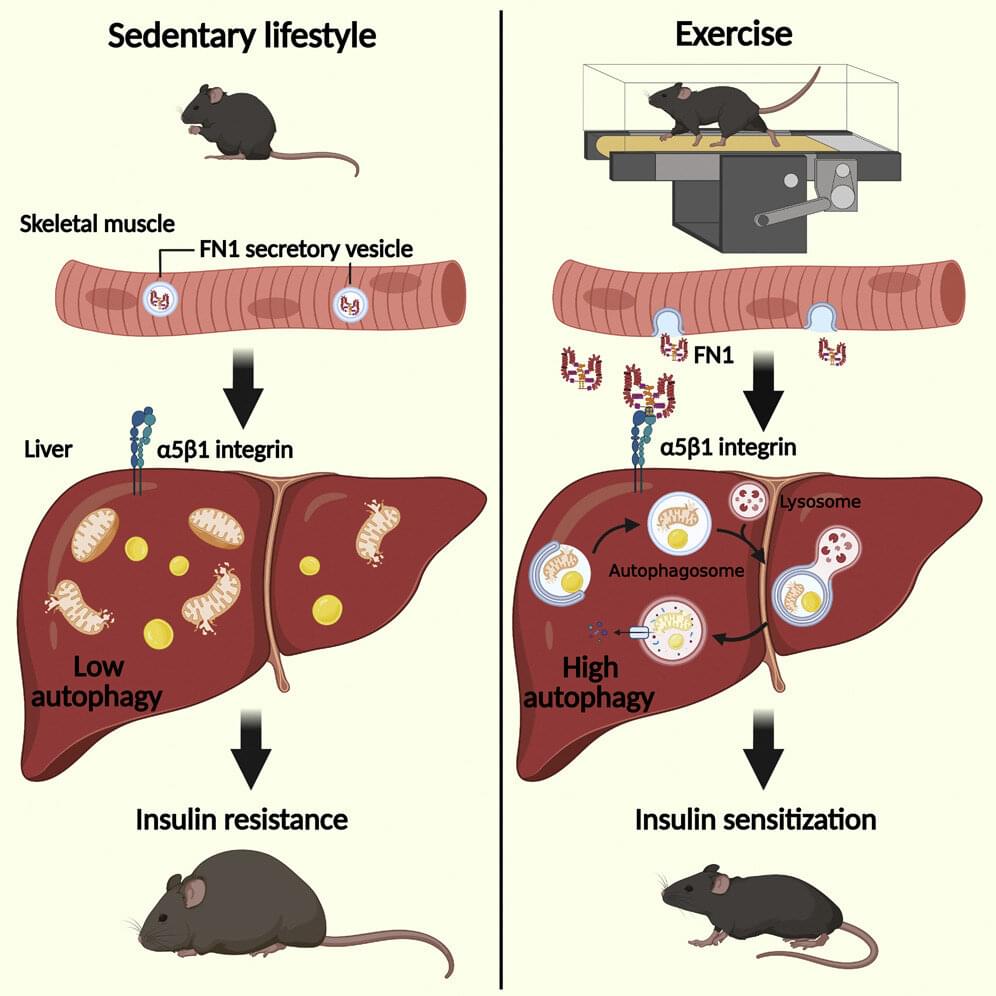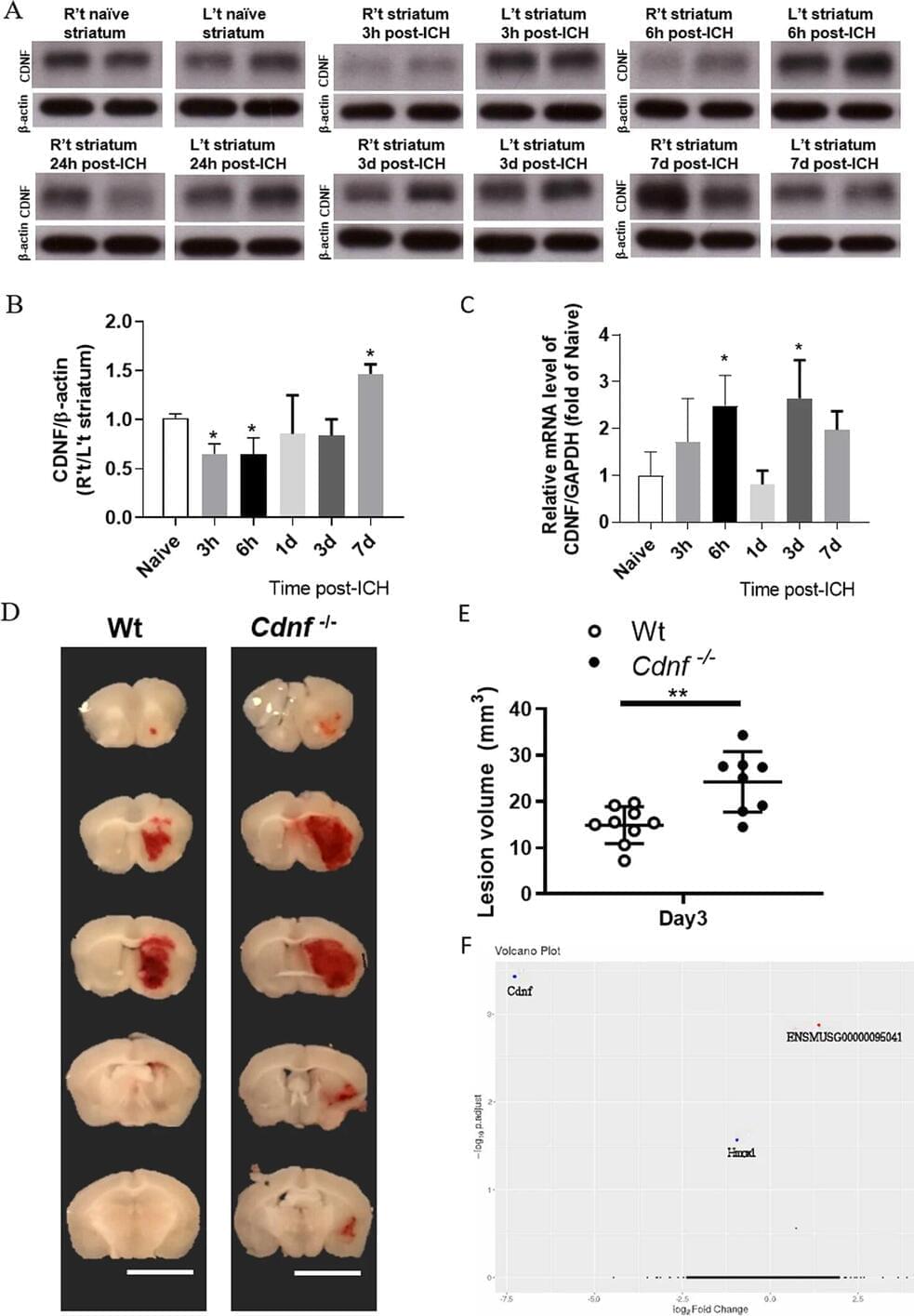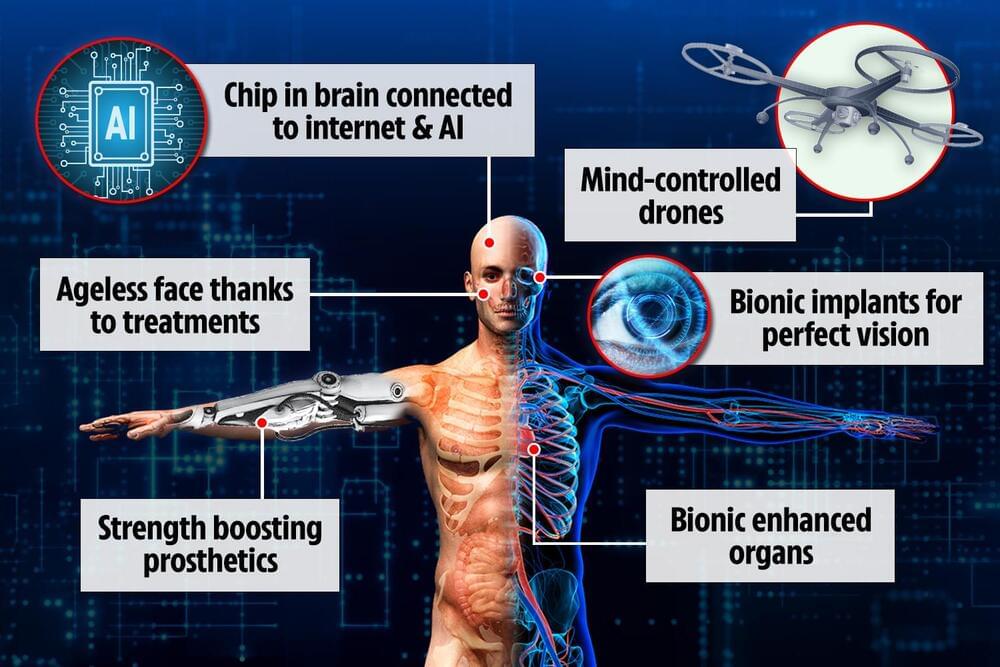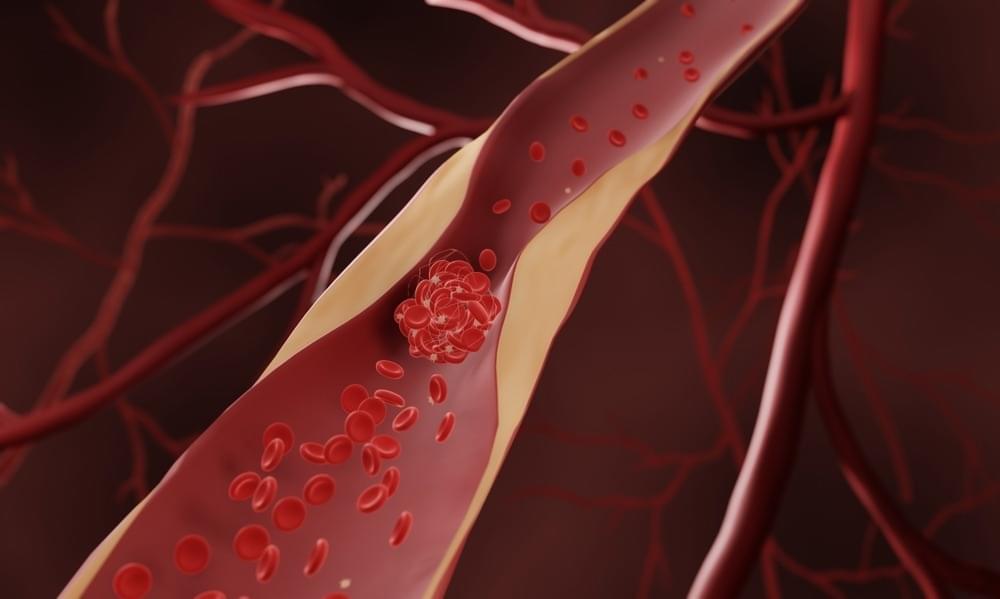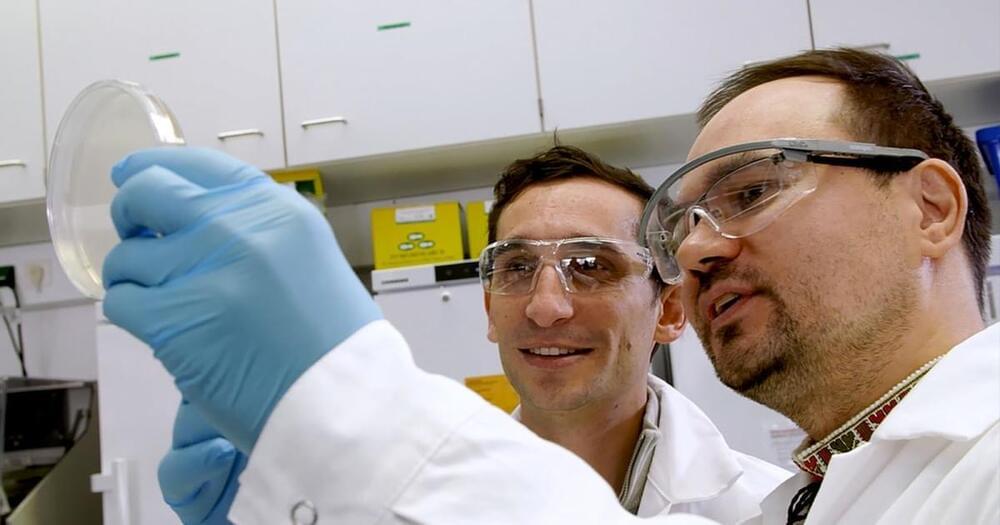Mar 16, 2023
Understanding how exercise induces systemic metabolic benefits
Posted by Shubham Ghosh Roy in categories: biotech/medical, health
Northwestern Medicine scientists have uncovered a mechanism by which exercise activates metabolic benefits in the body, according to a new study published in Cell Metabolism.
It’s well known that exercise elicits many health benefits. However, how this is accomplished is not yet well understood. During exercise, autophagy, the body’s cellular recycling system that allows old or damaged cellular structures to be broken down, is activated in both contracting muscles and various non-contracting organs, such as the liver.
In the study, investigators performed proteomic analyses on the blood of mice before and after exercise. They identified a protein secreted from contracting muscle, FN1, which significantly increased in the plasma and serum of mice after exercise.
